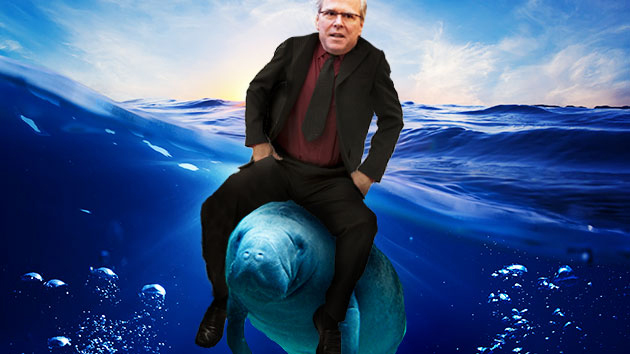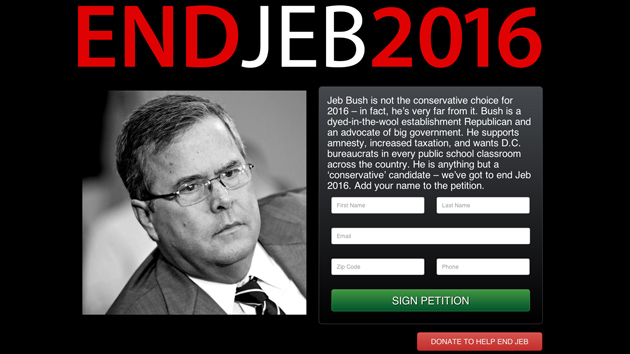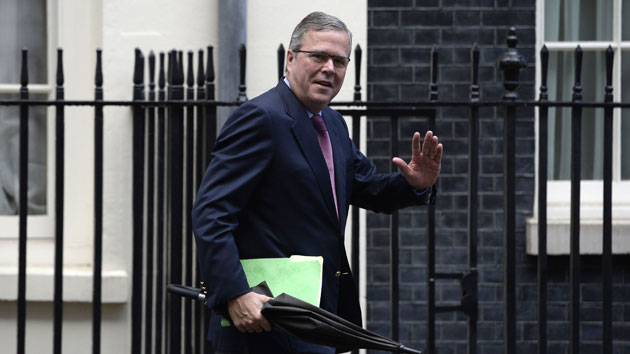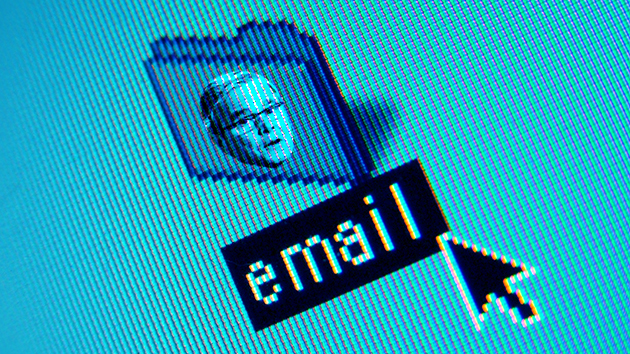
Shutterstock; Richard Ellis/Action Press/ZUMA
When the New York Times revealed that Hillary Clinton used a private email address as secretary of state, GOP presidential candidate-in-waiting Jeb Bush pounced. “Transparency matters,” he tweeted, linking to the archive of his own emails that he had made public a month earlier.
But Bush is hardly in a position to take potshots at Clinton over her emails. Like Clinton, he conducted government business using a personal email account (two of them, actually). He released only a portion of his correspondence from his time as governor of Florida. And it took Bush more than seven years to hand over his self-selected emails, as required under a Florida public records law.
Moreover, Bush’s email archive, which includes more than 250,000 messages, has produced no piercing insights or major news stories about his gubernatorial stint. There are an immense number of emails from constituents weighing in on the issues of the day. But when it comes to the major issues of his governorship, there are—curiously—very few, if any, emails between Bush and his aides. This email archive is not easy to search. It is comprised of 248 separate files and is hardly user-friendly. But employing the most obvious search terms for key episodes that occurred during his governorship, as well as combing messages covering certain time periods, we mounted an extensive review of this gigantic collection of correspondence and looked for emails about the most important moments of Bush’s eight years leading the Sunshine State. This search yielded little correspondence revealing Bush’s actions and decisions regarding pivotal events. It turns out that what’s most notable about Bush’s email trove is what’s not in it.
The 2000 Elections
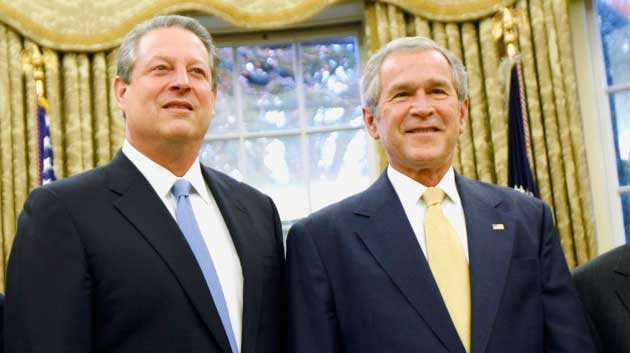
When the 2000 presidential election between George W. Bush and Al Gore came down to Florida, Jeb Bush and Secretary of State Katherine Harris found themselves at the center of the political universe. Bush’s email archive contains reams of messages that poured in from constituents during the controversial recount process, but there are barely any notes between Bush and his aides.
The day after the election—which ultimately took 36 days, several Florida court rulings, and a final intervention by the US Supreme Court to resolve—Bush officially recused himself from the election certification process. But an investigation by the Los Angeles Times found that Jeb Bush’s office and top aides were in contact with his brother’s legal team and other top members of George W. Bush’s staff during the recount. Jeb officially handed the state’s 25 electoral votes to his brother on November 26, while court battles over the recount were still underway, and indicated he would sign legislation to preempt the courts and give the election to his brother. But if Bush and his top aides were discussing these important decisions or communicating with George W. Bush’s team, it does not show up in Jeb’s email archive. The archive does include Jeb Bush’s responses to a few constituents. When one emailed to ask Bush to certify the election, he responded: “I am doing what i can within the laws of our state.”
EliÁn GonzÁlez
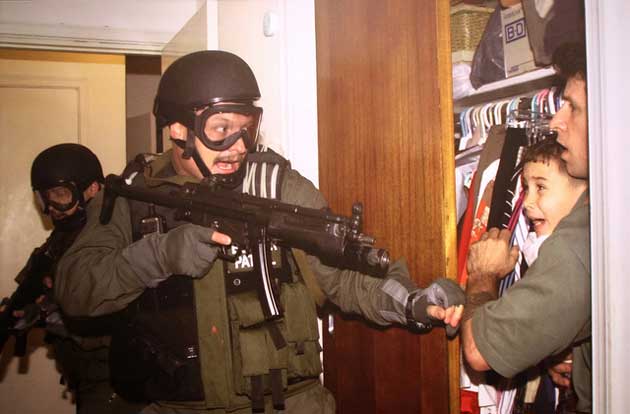
On Thanksgiving Day 1999, five-year-old Elián González was rescued off the coast of Florida after fleeing Cuba in a small boat with his mother and other refugees. Elián’s mother had drowned during the trip, setting off a months-long international custody battle between the child’s relatives in Miami and his father in Cuba. In emails to constituents throughout the saga, Bush supported allowing state courts to adjudicate the issue; he opposed the Clinton administration’s decision not to grant Elián asylum and denounced the federal raid in April 2000 that removed Elián from the custody of his Miami relatives. Yet internal deliberations about this high-profile matter between Bush and his staff are scarce in the email archive.
One email thread does show Bush looking for a way to intervene after the commissioner of the US Immigration and Naturalization Service announced that Elián should be returned to his father. On January 6, 2000, he forwarded a constituent email to his general counsel, Carol Licko, asking, “Carol, I think we should ask that ATTY General Reno overturn the INS decision and allow a custody proceeding take place in state court. We should do this manana. what do you think?” And that’s about it for Bush emails on this dramatic subject.
Several media outlets have scoured Bush’s email archive for clues about his actions during this episode. Beside his back-and-forths with constituents, they’ve turned up almost nothing.
Voter Purge, Part I
When Bush became governor in January 1999, the state was working on a project to purge felons from its voter rolls. Before Bush took office, the state had hired a company named Database Technologies Inc. (DBT) to cross-check criminal records against the state’s 8.6 million registered voters. The list of about 100,000 supposed felons that DBT generated was deeply flawed; it included thousands of misdemeanor offenders and Floridians with no criminal records. It disproportionately singled out minorities, particularly African Americans.
At the urging of Florida officials after Bush took office in January 1999, DBT conducted an overly broad search for potential felons. “[W]e want to capture more names that possibly aren’t matches and let [county election] supervisors make a final determination rather than exclude certain matches altogether,” a lawyer at the Florida Division of Elections told the DBT project manager in March 1999, according to a 2001 investigation by the Los Angeles Times. The Times concluded that the flawed list could have affected the outcome of the 2000 election—which came down to just 537 votes—by disenfranchising more black voters, who largely vote Democratic.
A search of key terms, relevant officials names, and variations of key phrases such as “felon list” came up largely empty, except for news articles that were circulated around about the scandal.
Voter Purge, Part II
In May 2004, another presidential election year, Jeb Bush’s administration once again sought to purge its voter rolls of convicted felons. Owing to the previous controversy with DBT, the state Legislature decided that the Department of Elections should create its own list. Once again, the process was flawed. When the list became public in July 2004, a major error became readily apparent: Of the 48,000 people on the new purge list, 22,000 were African Americans but only 61 were Hispanic. African Americans vote heavily Democratic while Hispanics, at that time in Florida, largely voted Republican. This prompted speculation that Jeb Bush’s administration was at best incompetent and at worst, playing politics with its purge list. Facing widespread criticism, it agreed not to use the list.
The Bush email archive holds little material on this major controversy, and we found no messages discussing how to deal with the issue or discover what went wrong. Only a few emails stood out on the voter purge issue. On August 19, 2003, Bush received an email from a county elections supervisor, Kay Clem, on voter purge efforts. “Talked to [Secretary of State] Glenda Hood about purging voter rolls today. She said she had just returned from a meeting with you and your staff,” Clem wrote. A few hours later, Bush forwarded Clem’s email to his chief of staff and Hood, writing, “we need to discuss.” As the scandal was swirling in July of 2004, Bush noted to the CEO of Accenture, the outside consulting firm that developed the formula used for the purge, “we have issues regarding the felons voting list work that you company have done.” There’s not much else.
Terri Schiavo
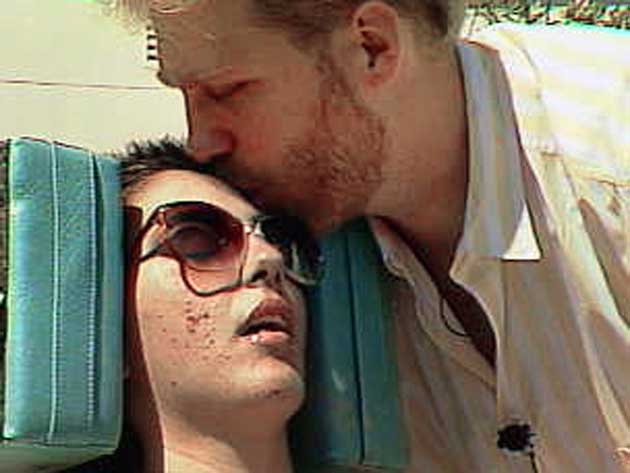
In 2003, Bush confronted one of the most contentious battles of his governorship: whether to allow Terri Schiavo to die after 13 years in a persistent vegetative state. Her husband, Michael, was fighting to take her off life support, while her parents were battling to keep her alive. Following a court order in September 2003, Schiavo’s feeding tube was removed. Bush and the Republican Legislature in Florida responded by quickly enacting what was called “Terri’s Law,” which allowed the governor to overrule the courts with an executive order to reinsert her feeding tube. The Florida Supreme Court unanimously ruled Terri’s Law unconstitutional in September 2004. Schiavo died on March 31, 2005, after all the legal options pursued by her parents, Bush, and Republicans in Washington and Florida had run out. An autopsy later confirmed that Schiavo had been completely brain dead with no chance of rehabilitation.
Bush’s email archive contains thousands of Schiavo-related messages from people around the country, but this collection reveals little about Bush’s decision making as a key player in one of the culture wars’ biggest battles. There are a few emails of note, however. When Bush officially entered the legal battle in the fall of 2003, his administration hired attorney Ken Connor as the outside counsel on the case. The archive shows nothing about the decision to hire Connor, but Bush’s aides did circulate “Ken Connor talking points” and his biography for Bush to use in media interviews. There are also emails from Bush’s legal team throughout the years-long saga providing updates on the case.
After the Florida Supreme Court ruled against Terri’s Law, the emails do show Bush and his aides looking for other legal avenues. On October 21, 2004, Bush forwarded to his general counsel an email from a constituent, who pleaded for Bush to take action. “We cannot open a criminal investigation? Are we sure that the statute of limitations applies?” Bush asked. No, his top lawyer replied: “for anything that happened to cause her current condition, S/L [statute of limitations] ran a long time ago.” The general counsel also noted that even accusations of recent abuse against Michael Schiavo weren’t enough to warrant state intervention in the case: “am looking into criminal penalties for abuse or exploitation as a vulnerable adult (within past 5 years or so), but law requires that it be referred to local law enforcement and local state attorney, neither of which have shown a disposition to do anything. have not found anything yet that bumps up to state law enforcement level, but still looking but we can’t yet be out there announcing anything.”
Despite this advice, Bush did use accusations of abuse to launch an unsuccessful, last-ditch effort to keep Terri Schiavo alive. The Schiavo case raised a host of vexing legal, policy, and political questions over nearly two years of Bush’s term. But the email trail is rather thin.
Manatees
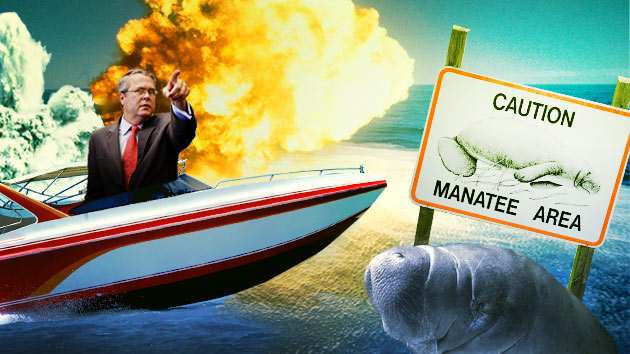
The gentle manatee—the cuddly, blubbery sea cow—is beloved in Florida, where the creatures lull and graze in warm, shallow waterways. For decades, both Florida and the federal government listed manatees as endangered species. Jeb Bush, who has called the manatee his favorite mammal, pledged to protect the species when he took office. But manatees, often struck by boaters in Florida, continued to die by watercraft. Floridians were sharply divided over whether Bush was doing too much or not enough to help the manatees.
To avoid what the New York Times said could become a campaign issue, the governor in 2001 requested that the US Fish and Wildlife Service delay federal mandates for manatee protection and hand the issue to the state. The agency agreed, a move that raised eyebrows in Florida among those who felt the governor’s brother was doing him a political favor. A federal judge ultimately overturned the decision.
Bush’s archive show manatees were a popular topic among constituents. But it contains no email exchanges between Bush and advisers on the question of federal involvement to protect manatees.
Cynthia Henderson
When he took office in January 1999, Bush appointed Cynthia Henderson—a Florida attorney and former Playboy bunny—to oversee the state agency in charge of business regulation. By December of that year, she faced investigations by the state’s chief inspector general and state Ethics Commission for a host of allegations, including giving plum government jobs to friends. She was also accused of attending the Kentucky Derby on the dime of a restaurant business she regulated. The allegations against this appointee became a major headache for Bush.
In September 2000, Bush finally removed Henderson from her post, transferring her to the state’s Department of Management Services; he denied that the ethics charges had anything to do with the shakeup.
Bush’s email archive includes no correspondence between Bush and his aides regarding the politically explosive allegations levied against Henderson. But Bush did respond to constituents who were concerned with Henderson’s alleged behavior. “If i felt that Cynthia was unethical or incompetent, I would ask her to leave. I don’t believe that it is the case,” he wrote to one constituent.



